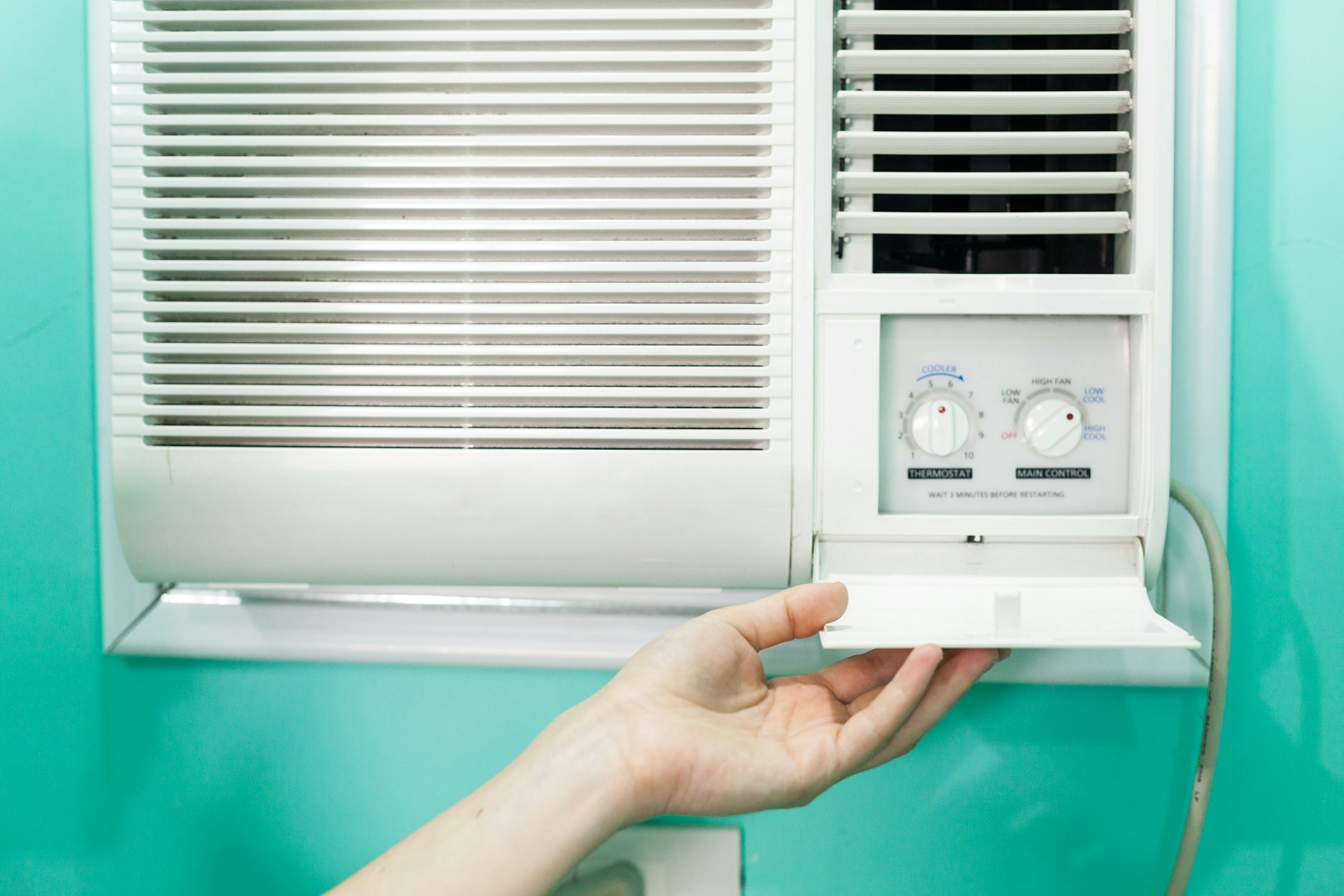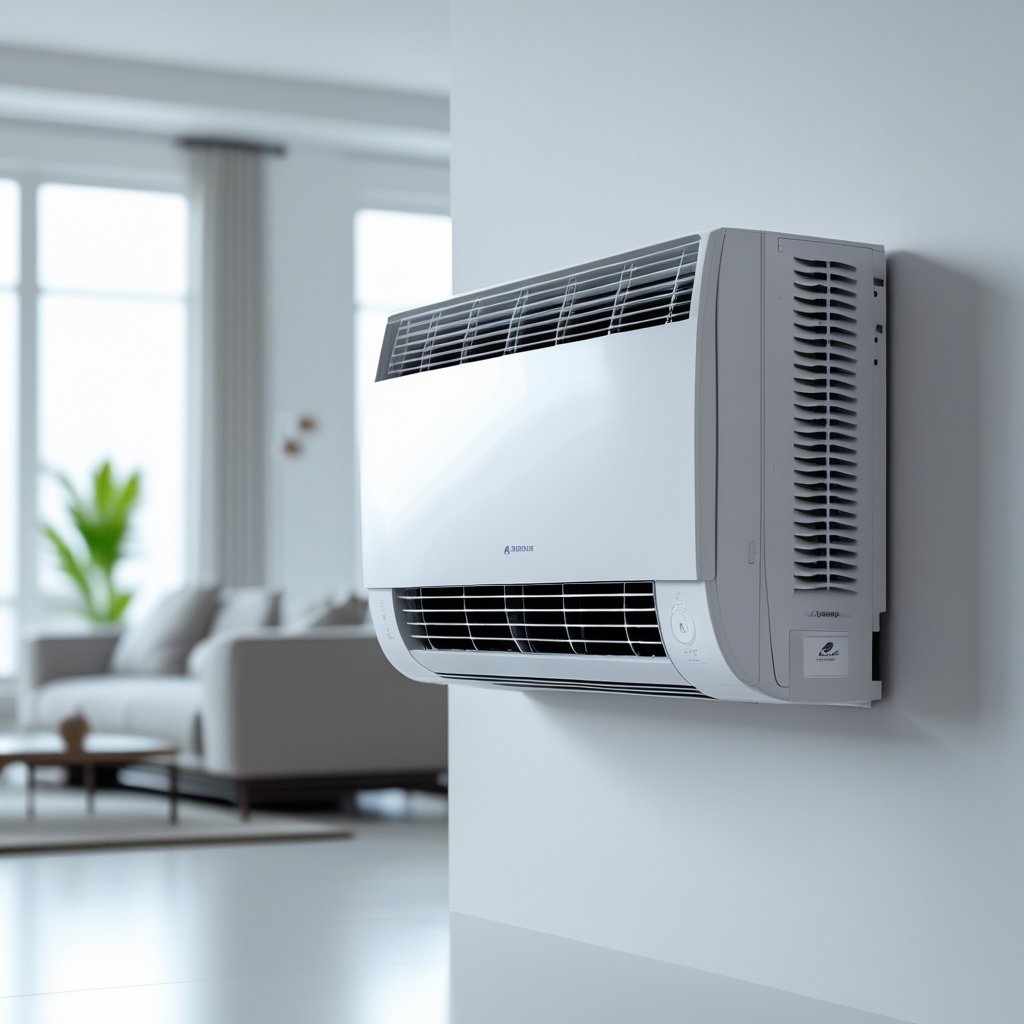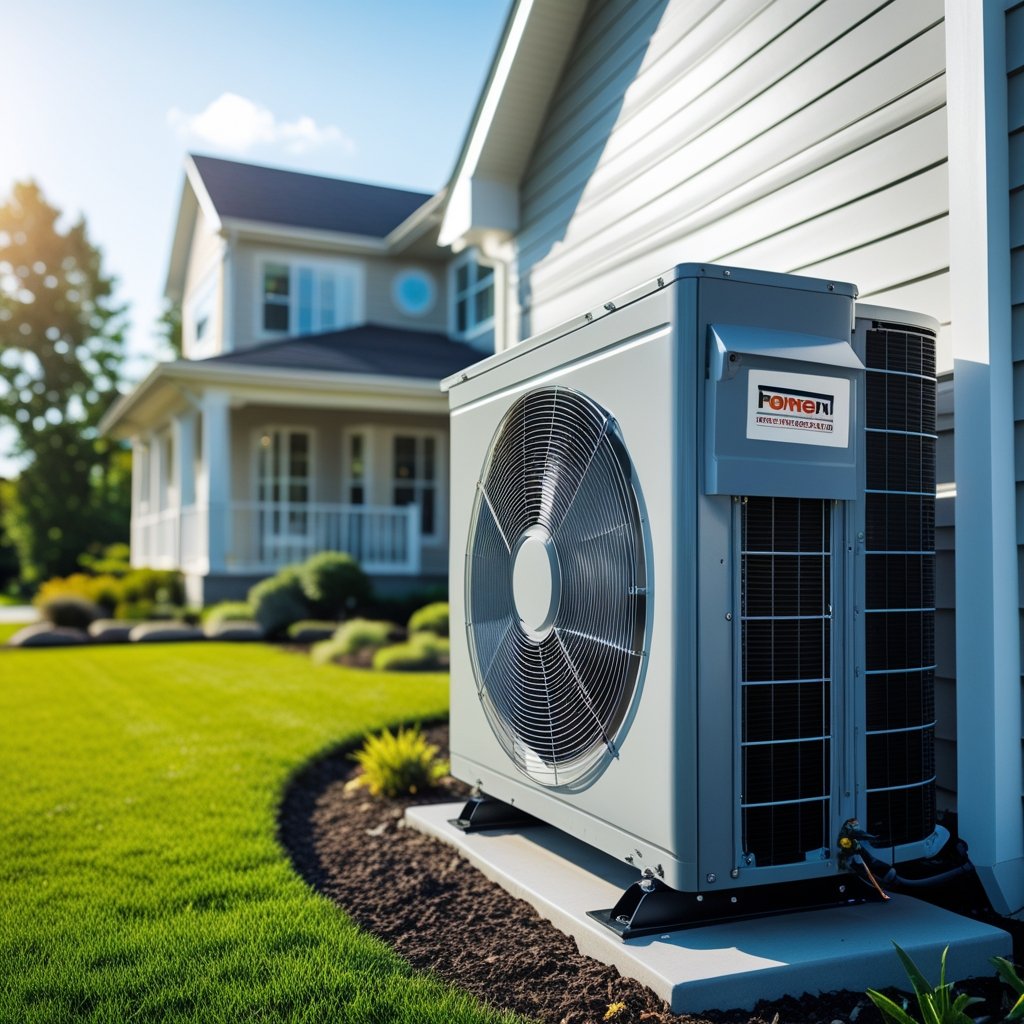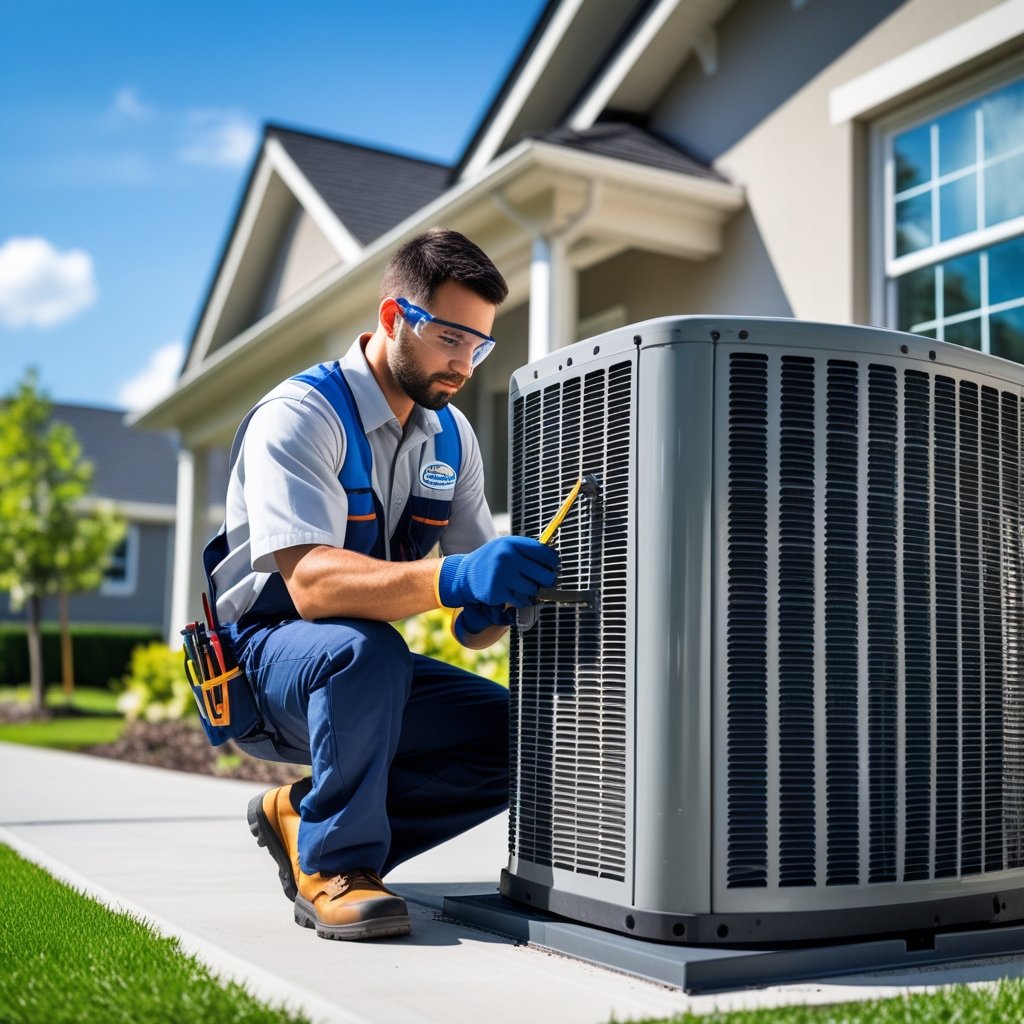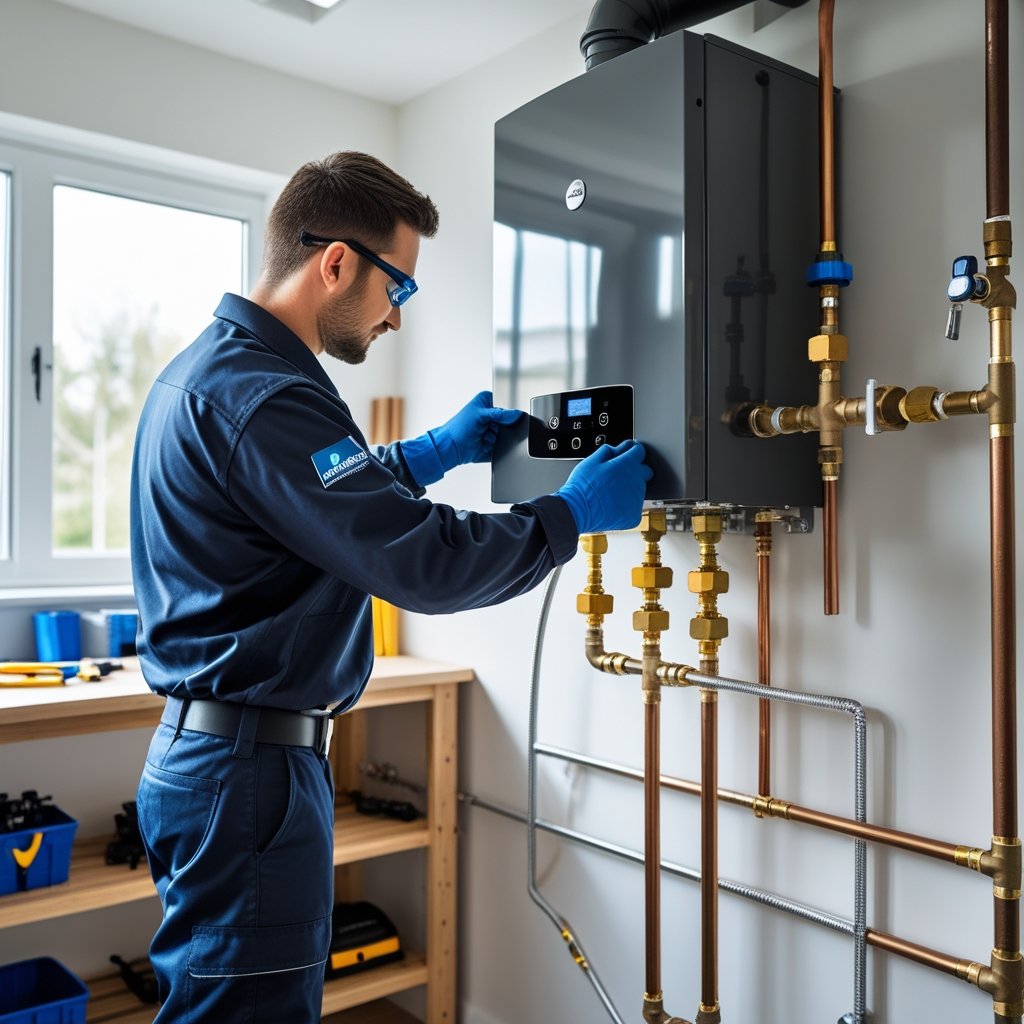Thinking about AC installation in Lancaster? You want a system that keeps your home comfortable without running up your energy bills. The smartest move is to pick a reliable, energy-efficient air conditioner that fits your space and comes with a professional install. This way, your system lasts longer and you save money in the long run.
Getting a new AC isn’t just about cold air. You need experienced technicians who actually understand Lancaster’s climate and can recommend what works for your house. Leo Kob Co.—a family-owned business serving Lancaster County and nearby towns—focuses on honest pricing and quality work, so your investment feels worth it.
Whether you’re after a full central AC unit or a mini-split for that one stubbornly warm room, proper installation is what makes the difference. Here’s what you should know to make the best call for your home’s cooling.
Understanding AC Installation in Lancaster
Installing an air conditioning system at home takes planning and, honestly, some expertise. You want the right system, installed properly, and set up to save energy—not just crank up your bills. A little knowledge here goes a long way.
Why Professional AC Installation Matters
How well your AC cools and how long it lasts? That’s all about the install. If it’s done wrong, you’ll end up with breakdowns or wasted energy. Pros can size the system for your space—so it’s not straining or idling.
Techs from places like Leo Kob Co. handle the details: sealing, wiring, testing. They’re careful to prevent leaks and electrical headaches. Plus, you get warranties and upfront pricing.
What you should get from a pro install:
- Accurate load calculation
- Proper placement of units (inside and out)
- Safe wiring and drainage
- System testing for actual performance
Popular AC Systems for Lancaster Homes
Most homes around Lancaster County rely on central air for whole-house cooling. These systems work well for larger spaces and tie into existing ducts. Mini-splits are also catching on, especially in houses without ductwork. They let you cool specific rooms and don’t take up much space.
Heat pumps are popular too, since they handle both heating and cooling and work well in our South Central PA climate.
Here’s a quick cheat sheet:
System Type
Best For
Key Benefit
Central AC
Whole-house with ducts
Even cooling
Mini-split
Homes without ducts
Zone control, quiet
Heat pump
Both heating and cooling
Versatile efficiency
The right system depends on your home’s size, insulation, and what you want to spend. Local installers like Leo Kob Co. can walk you through these choices.
Energy Efficiency Considerations
Efficient AC units save you money and cut down on wasted energy. Look for high SEER (Seasonal Energy Efficiency Ratio) ratings—the higher, the better.
Programmable thermostats or smart controls help you avoid cooling empty rooms and keep things comfy on your schedule.
Don’t skip maintenance. Regular check-ups catch problems before they get expensive and keep things running smooth. Leo Kob Co. has maintenance plans with priority service, repair discounts, and annual inspections to protect your investment.
Ask about local energy rebates for efficient units—they can help with upfront costs and save you even more over time.
Choosing the Right AC Unit
Picking the right air conditioner means thinking about your home’s size, how you use it, and how much energy you want to save. These details help you land on a system that actually fits your life and your budget.
Assessing Home Size and Cooling Needs
Your home’s size matters. A unit that’s too small won’t keep up, and one that’s too big just wastes energy. Measure your square footage, check insulation, windows, and how much sun pours in.
Think about how often you run your AC and if certain rooms always seem warmer. Big open spaces may need more power. Around Lancaster, don’t ignore humidity either—it really affects comfort.
Comparing Central Air vs. Ductless Systems
Central air cools your whole house using ducts. If you already have ductwork, it’s a solid option. Ductless mini-splits are great for cooling specific rooms or homes without ducts. They give you more control and can cut energy costs.
Want one solution for the whole house? Central air is usually simpler. But if you’re just cooling an addition or a single spot, ductless is easier to add. Leo Kob Co. handles both types around Elizabethtown and York.
SEER Ratings and Energy Savings
SEER means Seasonal Energy Efficiency Ratio. Higher SEER = better energy savings. For South Central PA, look for SEER 14 or higher.
A high SEER unit can cut your bills over time. Some efficient systems also qualify for rebates or tax credits. And honestly, keeping up with maintenance keeps your AC at its best, saving money and headaches.
The AC Installation Process
Installing a new AC involves a few key steps. First, there’s a home check, then installation day, and finally, making sure everything works right.
Initial Home Evaluation
Before anything happens, a tech comes out to check your home’s size, layout, and cooling needs. This helps pick the right AC for your space and avoids wasted energy.
They’ll look at your ductwork, electrical panel, and insulation. If you need upgrades, you’ll get the info up front—no surprises. This step keeps things smooth later.
If you’re in Lancaster, Elizabethtown, or York, Leo Kob Co. does these evaluations carefully to make sure your new AC fits your home.
Installation Day Steps
On the big day, techs show up with tools and your new AC. If you’ve got an old unit, they’ll remove it carefully.
They’ll set up the new indoor air handler and outdoor condenser, making sure everything’s in the right spot for quiet, efficient cooling. Wiring and refrigerant lines get connected to code.
It usually takes a few hours. The crew keeps things tidy and answers your questions along the way.
Post-Installation System Testing
After the install, testing starts. Techs check airflow, thermostat response, and temperature output to make sure your home cools evenly.
They’ll look for leaks in refrigerant lines and double-check electrical connections. If your system qualifies, they’ll help with rebate paperwork.
You’ll get advice on basic upkeep and how to use your new AC. Leo Kob Co. offers ongoing support in Lancaster County to keep your system running right.
Best Practices for AC Installation Safety
AC installation takes attention to detail and a focus on safety. Following local rules and making sure everything’s up to code keeps your system working well and your home protected.
Permits and Regulations in Lancaster
In Lancaster County, you need the right permits before installing AC. This makes sure your system meets safety and energy codes. Inspectors check that everything’s up to Lancaster’s standards.
Skipping permits? That can mean fines or headaches when you sell your home. Your installer should handle permits and inspections, but it never hurts to double-check.
Leo Kob Co. always follows local rules. That helps avoid delays and gives you peace of mind.
Electrical and Structural Safety Tips
Make sure your AC install follows electrical codes—this prevents fire risks and power issues. Licensed electricians should handle wiring, breaker sizing, and grounding.
The outdoor unit needs a solid, level base (think concrete pad). This keeps it stable. Leave space around it for airflow and easy maintenance.
Check refrigerant lines and drainage to avoid damage. Don’t let pipes get pinched or bent too sharply.
Attention to these details keeps your AC safe and long-lasting. Leo Kob Co. makes this a priority on every job in South Central PA.
Maintaining Your New AC System
Keeping your new AC in good shape helps it run efficiently and last longer. Staying on top of routine care and knowing when it’s time for help can save you money and stress.
Routine Maintenance Tips
Regular upkeep keeps your AC going strong. Swap or clean air filters every 1 to 3 months, depending on use. Clean filters mean better airflow and lower energy use.
Clear leaves and debris from around the outdoor unit. Trim plants nearby so air can move freely.
Check your thermostat settings to keep things comfy without overworking the system. It’s smart to schedule a pro tune-up once a year. At Leo Kob Co., we do thorough yearly inspections—cleaning coils, checking refrigerant, and testing controls.
Signs Your System Needs Attention
Listen for weird noises—rattling or grinding can mean loose parts or motor trouble.
If your home isn’t cooling evenly or stays too warm, you might have leaky ducts or a clogged filter.
Spiking energy bills? That’s a clue your AC needs a check.
Watch for water leaks near the indoor unit or frost on the outdoor coil. If you spot these, book a professional checkup to keep your AC running right.
Costs Associated with AC Installation
When you’re planning a new AC system, a few cost factors come into play: the size and type of unit, how tricky the install is, and any rebates or incentives. Knowing these details helps you budget for your Lancaster County home.
Factors That Affect Pricing
AC installation costs depend on a few things. First, bigger homes need bigger systems—those cost more. The type of unit matters too. A mini-split might cost more upfront than a central air system, but it could save you on energy.
If you need new ductwork or electrical upgrades, that bumps up your total. Where you live also matters—Elizabethtown or Mount Joy might have different rates than other towns.
Leo Kob Co. gives clear, upfront pricing so you know what you’re paying before work starts. They focus on quality service at a fair price for Lancaster, York, and nearby.
Available Rebates and Incentives
You might be able to cut install costs with rebates or incentives. Utility companies and government programs sometimes offer help for installing efficient AC units. These programs push you toward systems that use less power, saving you money every month.
Check for state or local rebates on ENERGY STAR units or equipment upgrades. Usually, you’ll need to pick a system that meets certain efficiency standards.
Leo Kob Co. can walk you through which programs fit your home and help with the paperwork. These offers lower your upfront costs and boost your long-term savings.
Selecting a Reliable AC Installer in Lancaster
Picking the right AC installer means finding someone who gets your home, your needs, and your budget. Look for experience, trustworthiness, and honest communication. Knowing what to ask and what to watch for can help you dodge costly mistakes.
What to Look for in a Local Contractor
Go for a contractor with real local experience—someone who knows Lancaster County, Elizabethtown, Mount Joy, or wherever you call home. Local roots mean they get the quirks of our climate and the codes that come with it. Always check for licensing and insurance, and make sure their pricing is up front. Nobody wants to find surprise fees after the job’s done.
See if they handle things like mini-split installation or heat pump setups. These can seriously boost your system’s efficiency. Customer reviews are worth a look, too. Focus on feedback about punctuality, work quality, and how they treat you after installation.
Questions to Ask Before Hiring
Ask if they’ll give you a written estimate that spells out every cost. Find out if they’ve worked on your specific AC system before and whether they offer maintenance plans. It’s also smart to check if they’ll take care of permits and inspections for your Lancaster home.
Ask if their techs are factory-trained and how they handle warranties or service guarantees. Wondering about energy-saving options or rebates? Bring that up, too. If they answer these clearly, it’s a good sign they’ll look out for your investment.
Leo Kob Co. promises fair pricing with no hidden fees and serves South Central Pennsylvania. They aim to make your AC installation as stress-free as possible.
Common Challenges and Solutions in Lancaster
Planning AC installation in Lancaster County? You’ll run into some unique issues, especially with older homes and the wild swings in local weather.
Installing AC in Older Homes
A lot of Lancaster’s older homes just weren’t built for modern ductwork. Fitting a central air system can get expensive or downright tricky. That’s where ductless mini-split systems come in handy—Leo Kob Co. knows these inside and out. They’re flexible, and you don’t need big ducts running everywhere.
Electrical capacity is another headache. Old wiring sometimes can’t handle today’s AC units. A licensed tech should check your panel and suggest upgrades if needed.
Insulation is often lacking in older homes, too. Adding insulation or sealing up leaks makes a big difference—your AC won’t have to work as hard, and your bills might drop.
Managing Lancaster's Climate Extremes
Lancaster summers get hot and sticky, and winters still pack a punch. Your AC system needs to keep up with these swings.
Pick energy-efficient units with solid SEER ratings to help cut electricity costs. Regular maintenance—like cleaning filters and checking refrigerant—keeps things humming along during the worst heat.
Leo Kob Co. offers service plans with pre-summer inspections, so your AC’s ready for the heavy lifting. Smart thermostats are worth considering, too. They adjust settings automatically, which is pretty handy when the weather can’t make up its mind.
Future Trends in AC Technology
AC systems are getting smarter and more energy-efficient every year. New models use less energy, so your bills stay lower—even when Lancaster’s heat cranks up.
Smart tech is changing the game. Many systems now connect to your phone or voice assistants, letting you tweak settings from anywhere. It’s pretty convenient, honestly.
Eco-friendly refrigerants are on the way, replacing the old stuff that’s rough on the environment. It’s a step forward, and you’ll still get reliable cooling.
Mini-split systems are catching on fast, especially in places like Elizabethtown and Mount Joy. They’re quiet, easy to install, and perfect for zoning—cool just the rooms you need, and save money while you’re at it.
Leo Kob Co. keeps up with these changes to bring you solid AC installation and maintenance. We focus on systems that last and keep your home comfortable, whatever the season throws at you.
Here’s what’s coming up:
- More energy efficiency
- Smart home compatibility
- Safer, greener refrigerants
- Extra zoning and mini-split options
We’ve been family-owned and serving South Central PA since 1904, so we get what local homes in York and Hershey need. We’ll help you choose new AC tech that fits your life and your budget.
Frequently Asked Questions
If you’re planning AC installation, timing, cost, and picking the right service all matter. You’ll want to know how long it takes, if you need permits, and how to keep things efficient.
What's the best time of year to install an air conditioning system?
Shoot for spring or early fall. The weather’s easier, and contractors aren’t slammed. You’ll probably get quicker service and maybe even a better deal.
How do you choose a reliable AC installation service?
Look for a local company with solid reviews and a track record in Lancaster County or nearby. Leo Kob Co., family-owned since 1904, offers honest pricing and skilled work—no upsells. Make sure their techs are licensed and easy to reach.
What should I expect in terms of installation costs for a new air conditioner?
Costs depend on your home’s size and the system you pick. Energy-efficient models and setups like mini-splits usually cost more up front. A good contractor will give you a clear estimate without surprises.
Can you recommend energy-efficient AC units for my home?
Go for high SEER-rated, ENERGY STAR-certified models—they use less power and save money over time. Your installer can suggest what fits your home’s size and needs best.
How long does it typically take to install a new AC system?
Most jobs wrap up in one to two days, depending on your system and home setup. The crew will handle wiring, ductwork, and testing before calling it done.
Are there any permits required for AC installation in my area?
Yeah, in areas like Lancaster County and Elizabethtown, you’ll probably need permits before getting started on AC installation. Usually, your installer handles this, making sure everything lines up with local codes and safety standards.

